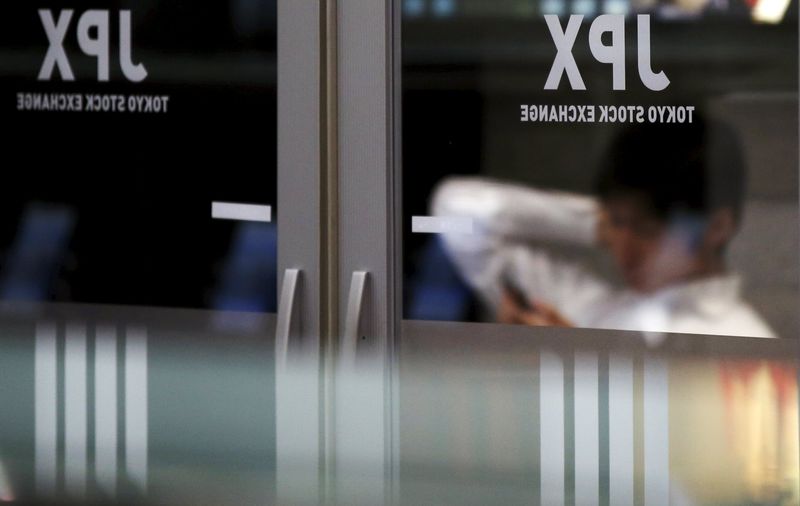Gold rally takes a breather amid Gaza ceasefire, Fed minutes
By Hideyuki Sano
TOKYO, March 13 (Reuters) - Japan's Nikkei share average
.N225 tumbled on Friday as investors rushed to exit stocks and
real estate funds on fears the global coronavirus pandemic will
scupper the Tokyo Olympics and lead to a recession both at home
and abroad.
The Nikkei .N225 fell as much as 10.1% at one point to hit
a 3-1/2-year low before ending morning trade down 7.97% at
17,081.14.
It was on course to post its biggest decline since March
2011, when the market was decimated by the triple disaster of an
earthquake, tsunami and a nuclear accident.
On the week, it has lost 18.5% and is likely to post its
second worst week ever after a 24% fall in early October 2008.
"It feels like panic. Investors are selling even assets that
should not be largely affected by the coronavirus, ignoring all
the fundamentals," said Takuya Hozumi, global investment
strategist at Mitsubishi UFJ Morgan Stanley Securities.
Selling mounted as investors have little idea now on how
much the global economy will slump as the coronavirus spreads,
forcing many governments to impose more restrictions on daily
life, analysts said.
The fear grew markedly after U.S. President Donald Trump on
Wednesday imposed restrictions on travel from Europe to the
United States while offering little in the way of measures to
support consumption. "With so many restrictions on people's moves, this will be a
man-made recession. If governments stop human moves to such an
extent, they need economic safety nets too," said Hiroshi
Watanabe, senior economist at Sony Financial Holdings.
Watanabe said the Nikkei's current levels suggested the
market has completely priced in a scenario that the Tokyo Games
planned this summer will not happen.
Analysts have estimated that a cancellation of the Games
would reduce corporate Japan's earnings by 24%.
The Nikkei has now fallen 29% from a 15-month peak hit in
January.
"The market has completely priced in cancellation of the
Olympics but we still don't see where the bottom is," Watanabe
said.
All of the Nikkei constituents were in the red, and even on
the main board with more than 2,100 listed shares, all but seven
shares fell. The broader Topix .TOPX fell 7.2% to 1,232.29.
Real estate companies .IRLTY.T were hit severely, falling
a whopping 11.8% to nine-year lows as the COVID-19 outbreak is
expected to encourage remote working, possibly reducing demand
for offices in the future.
Real Estate Investment Trusts, which had been bought
heavily as an alternative to negative-yielding bonds, suffered
brutal declines.
The TSE REIT index .TREIT dived 14.9%, even surpassing its
12.0% fall in October 2008.
